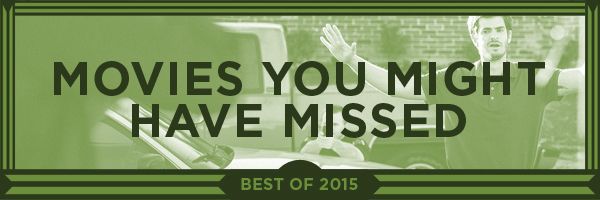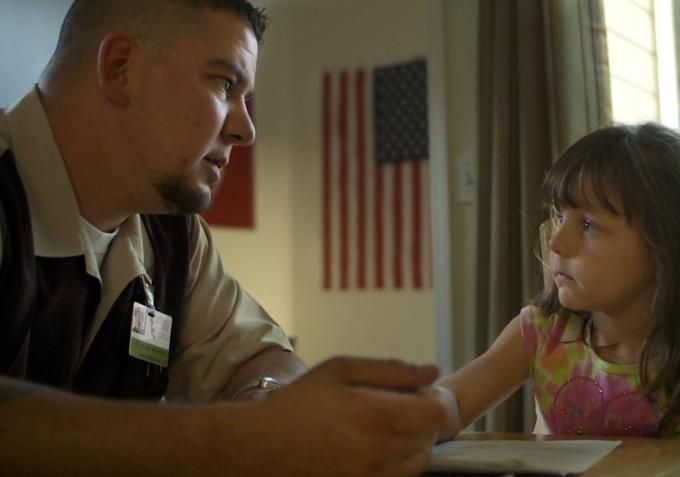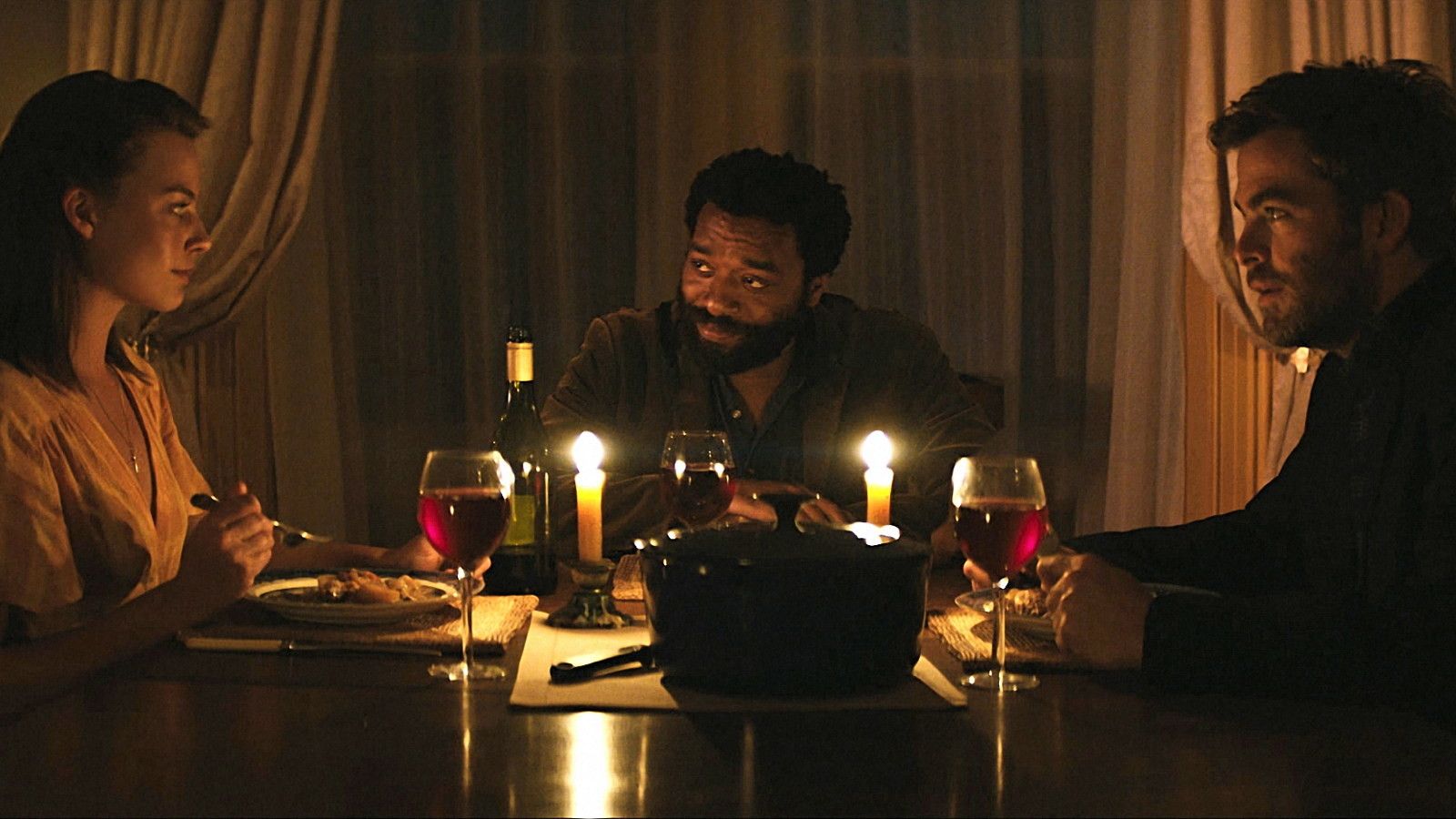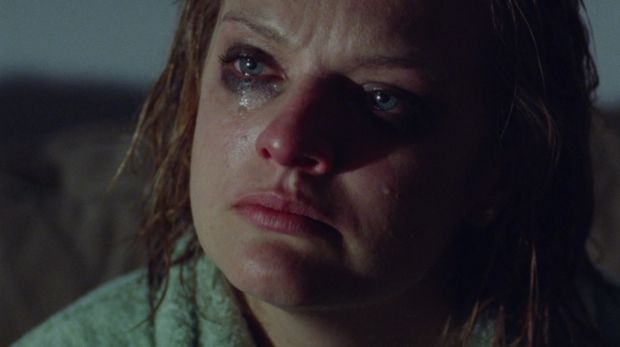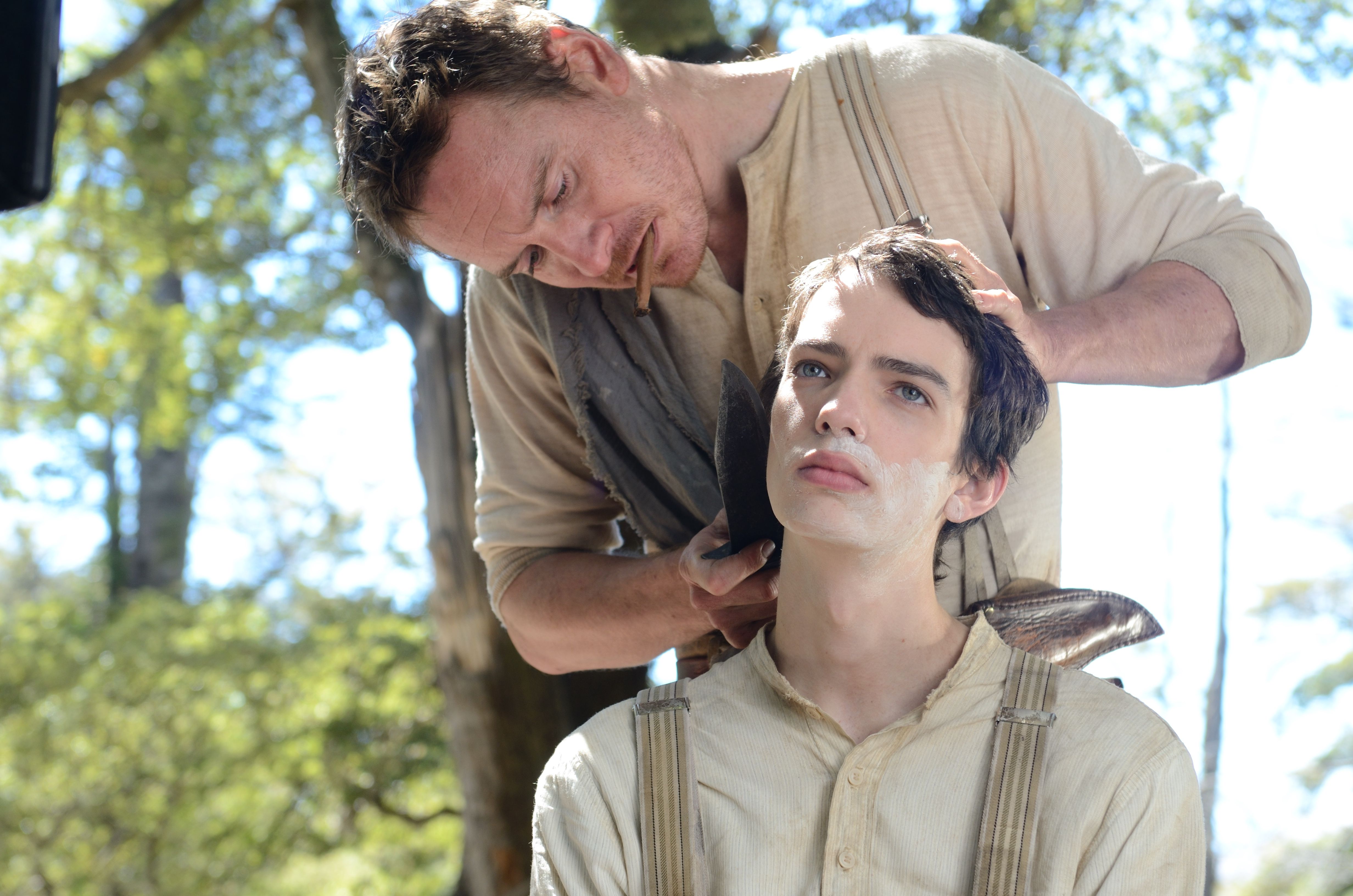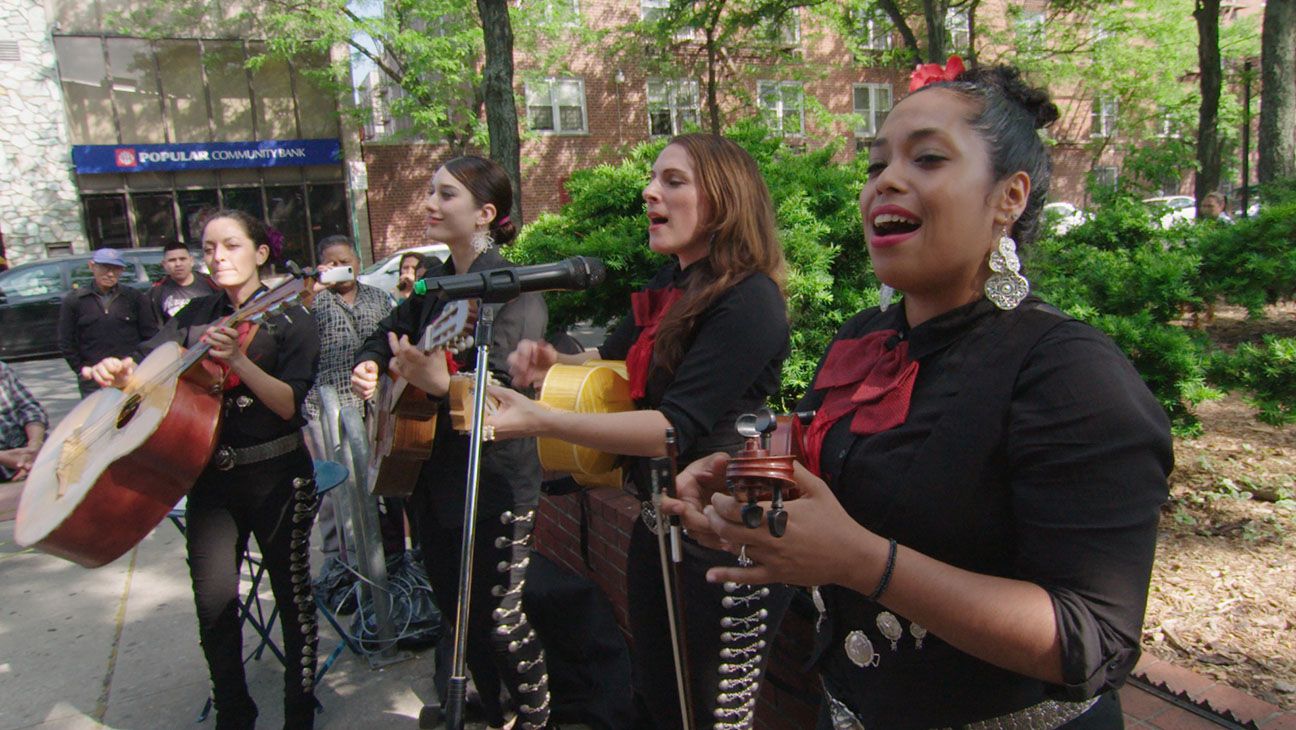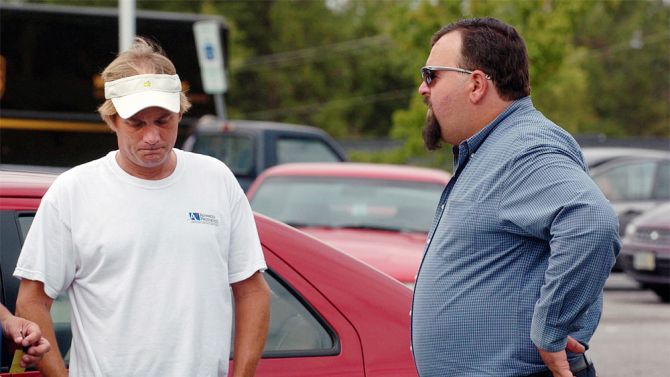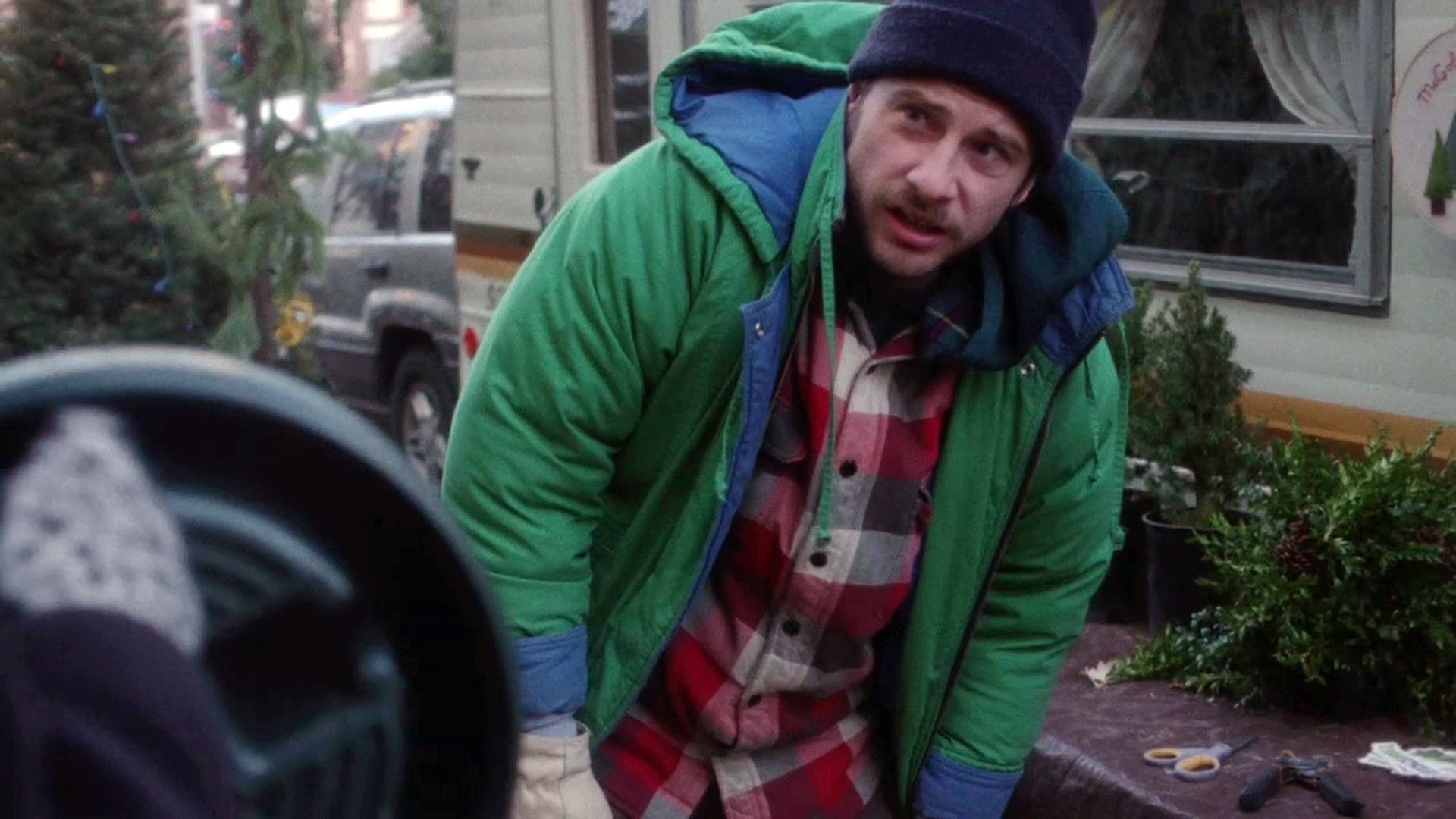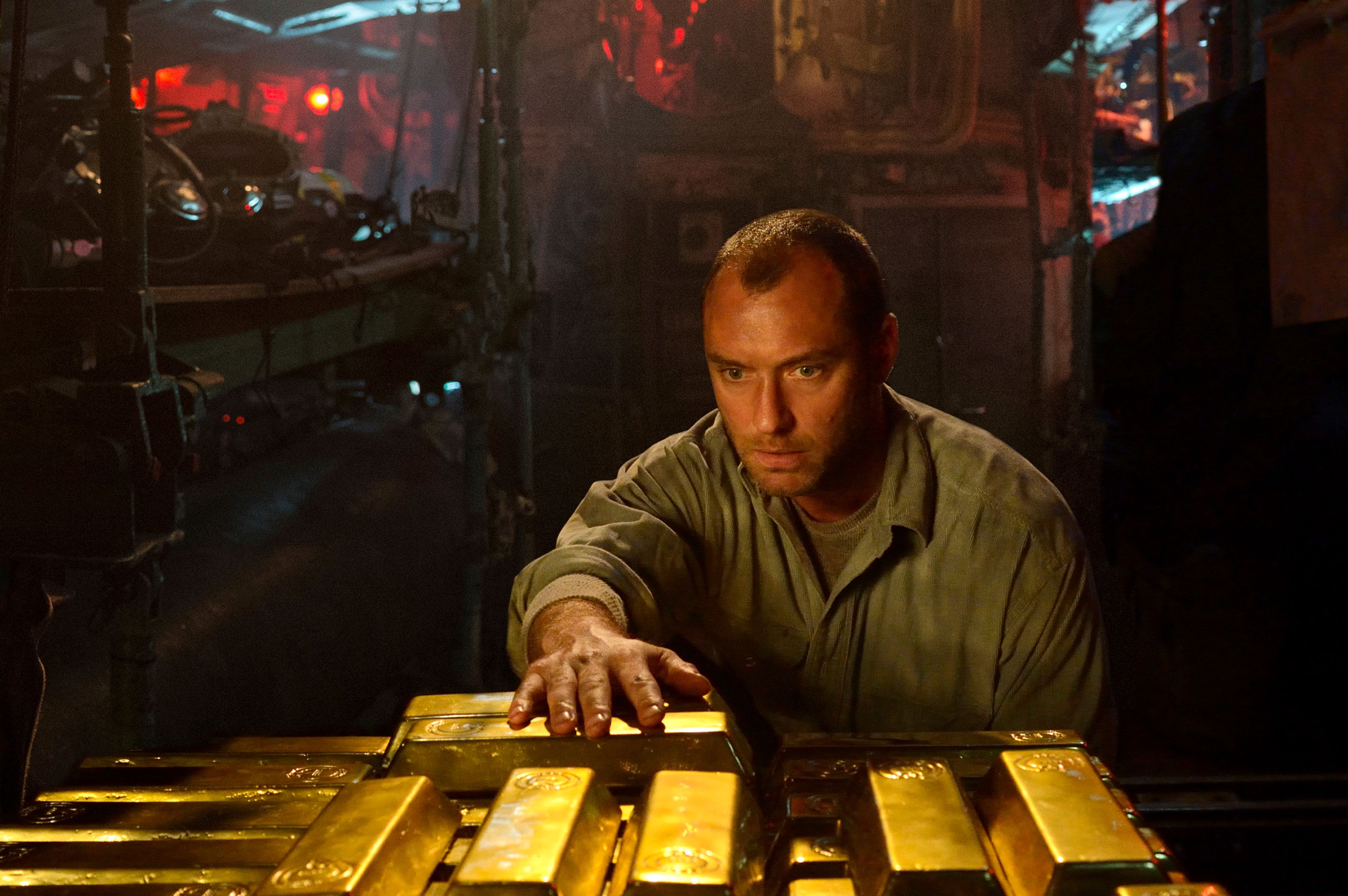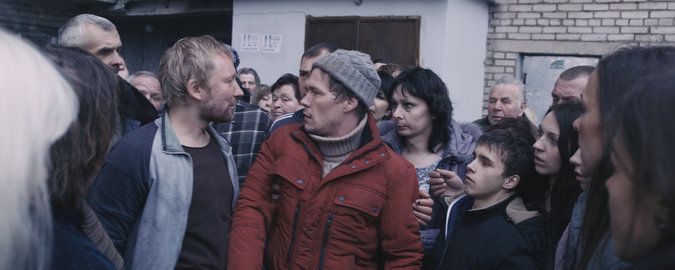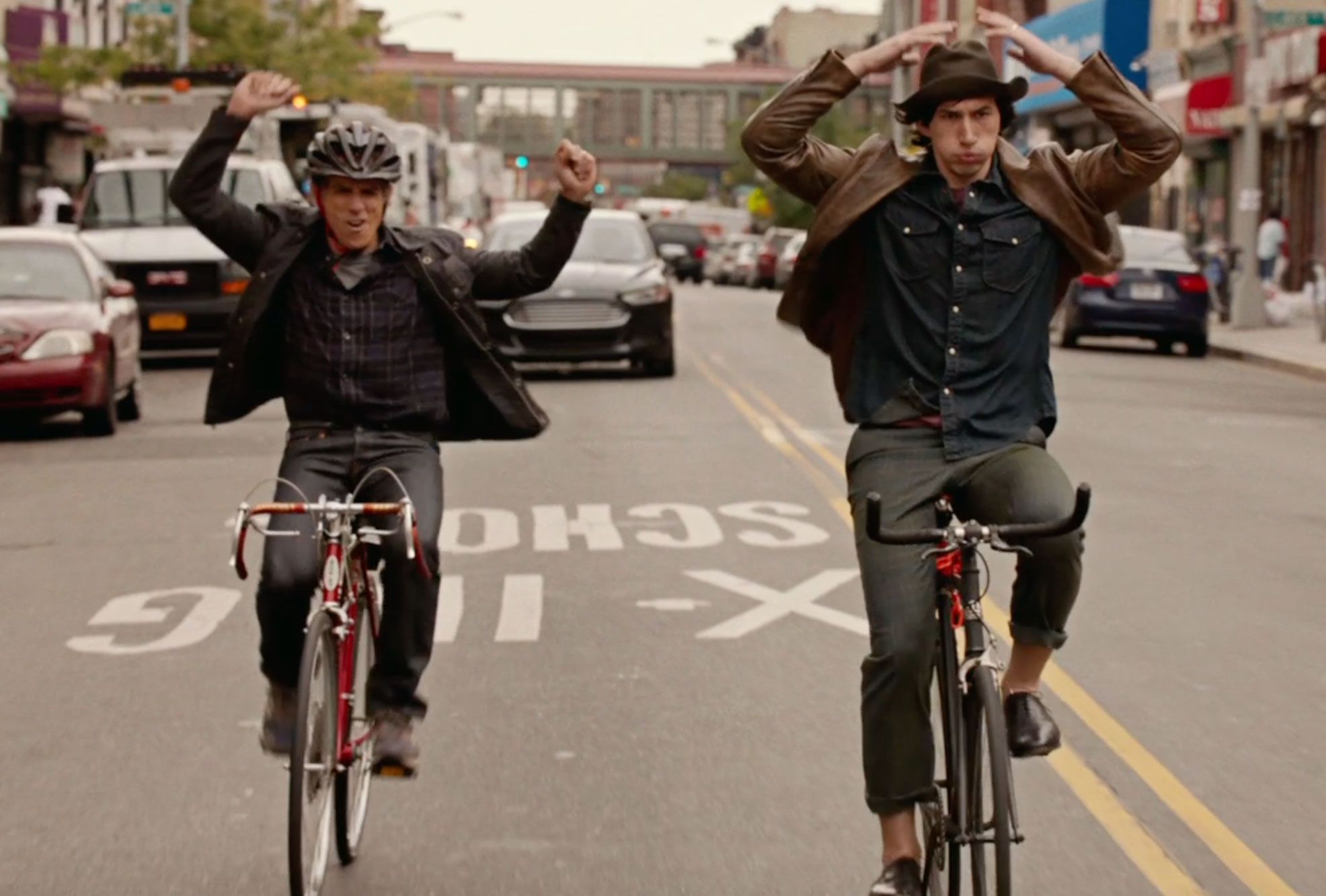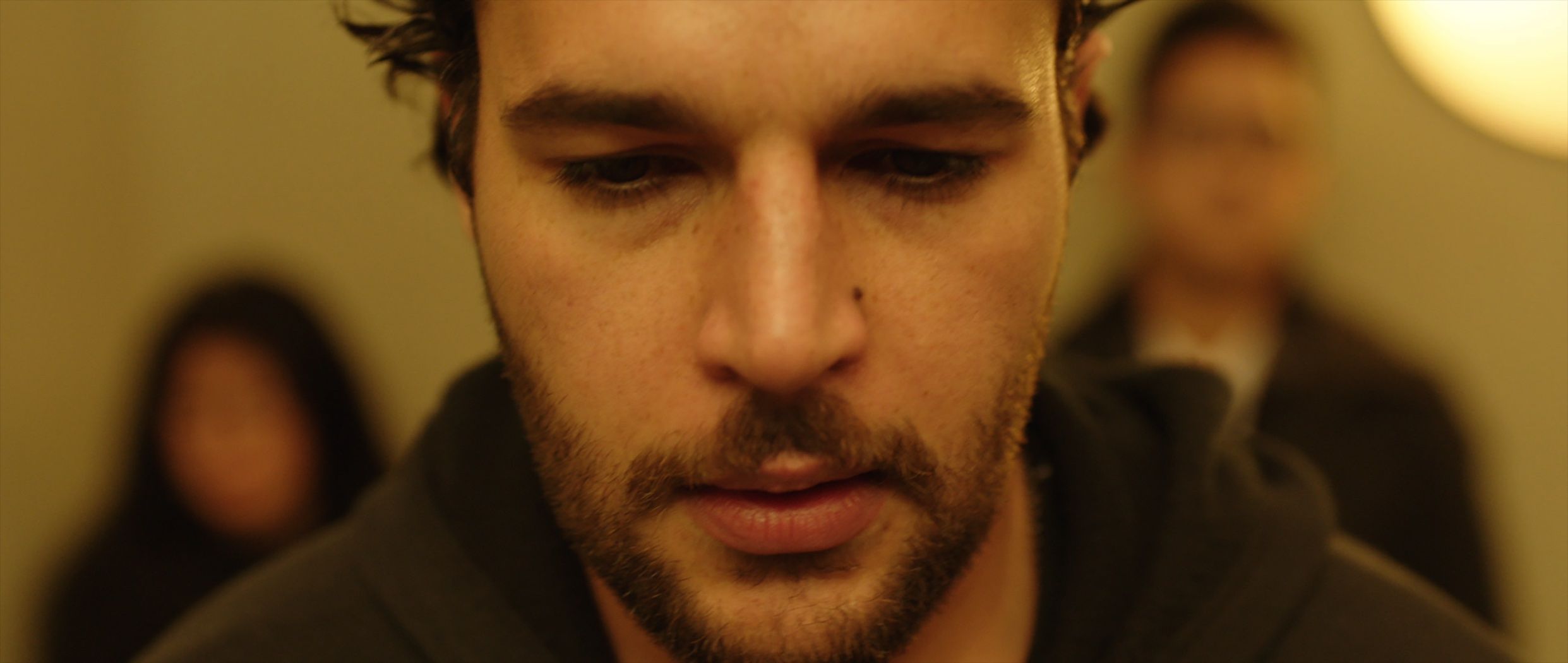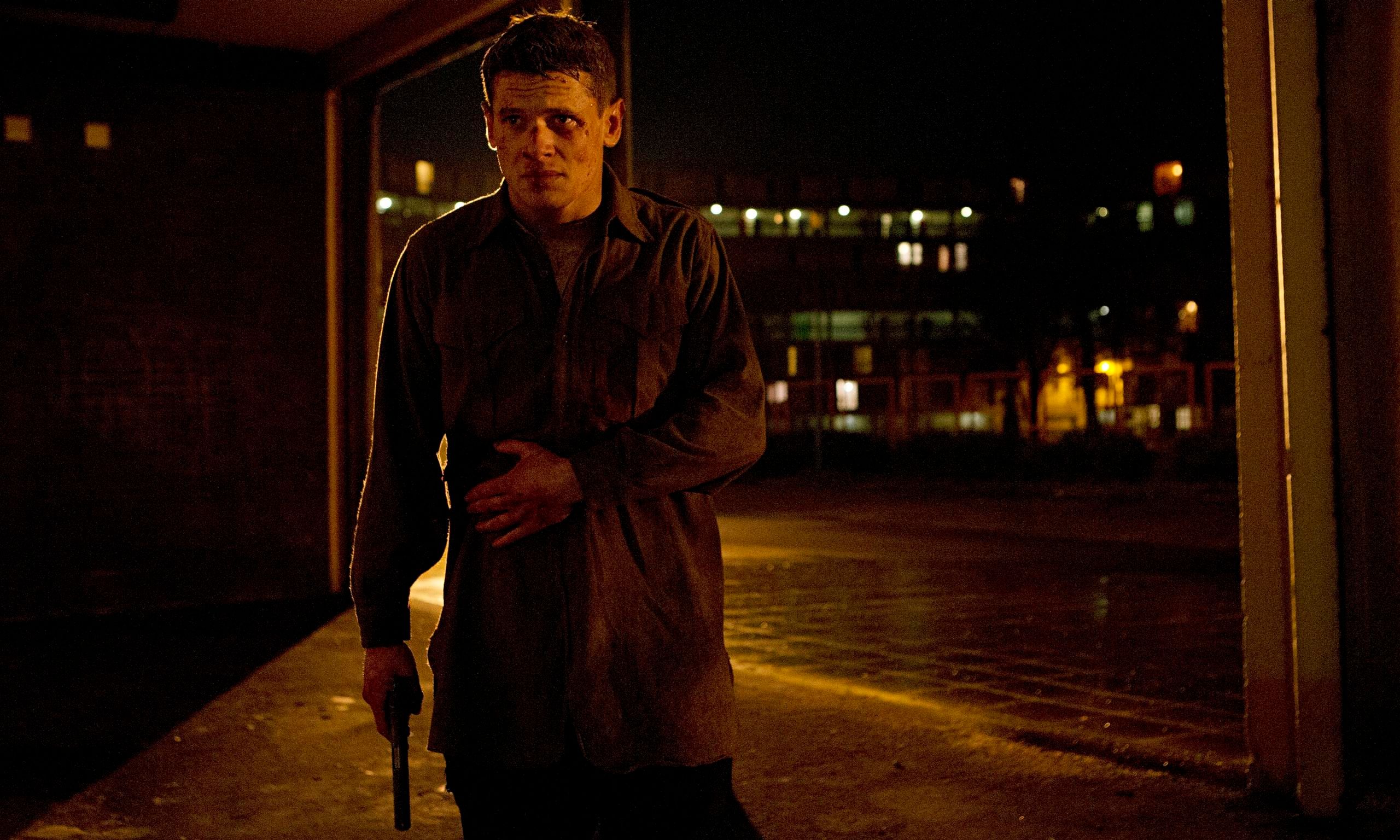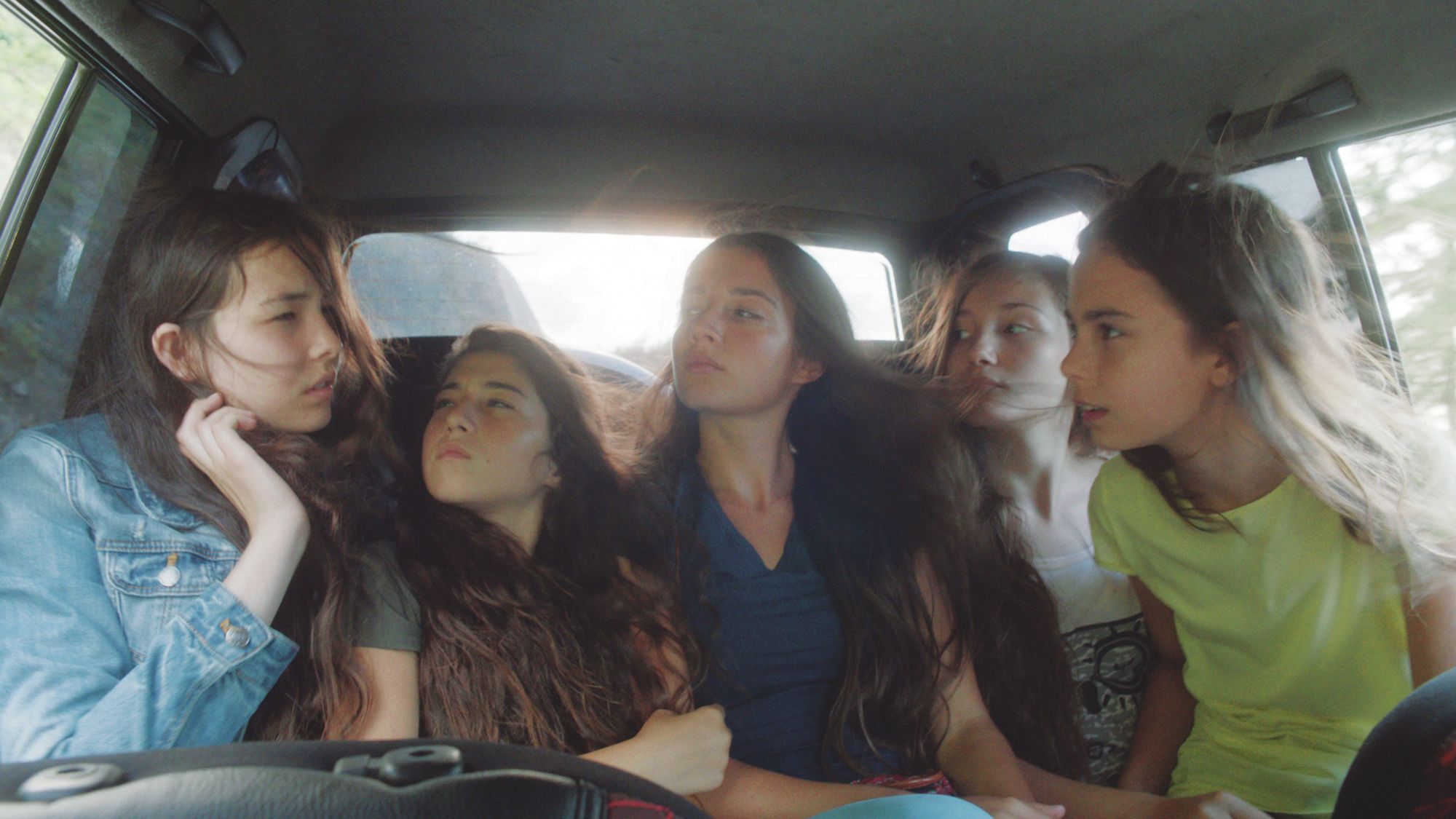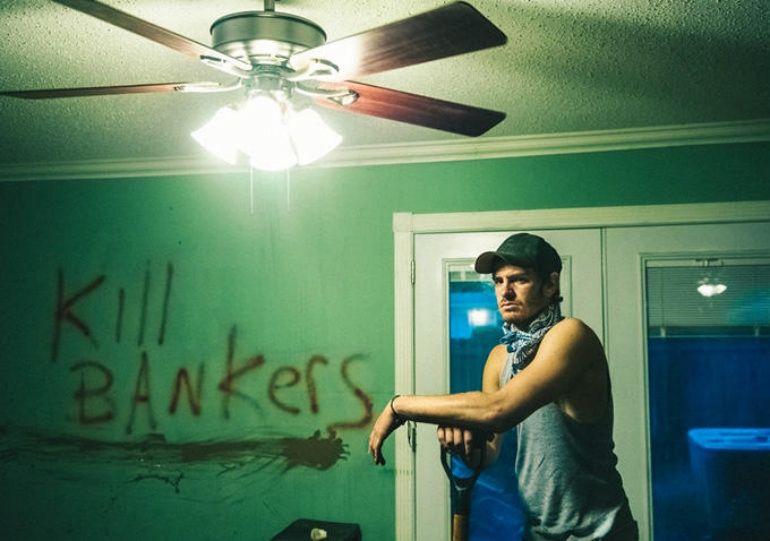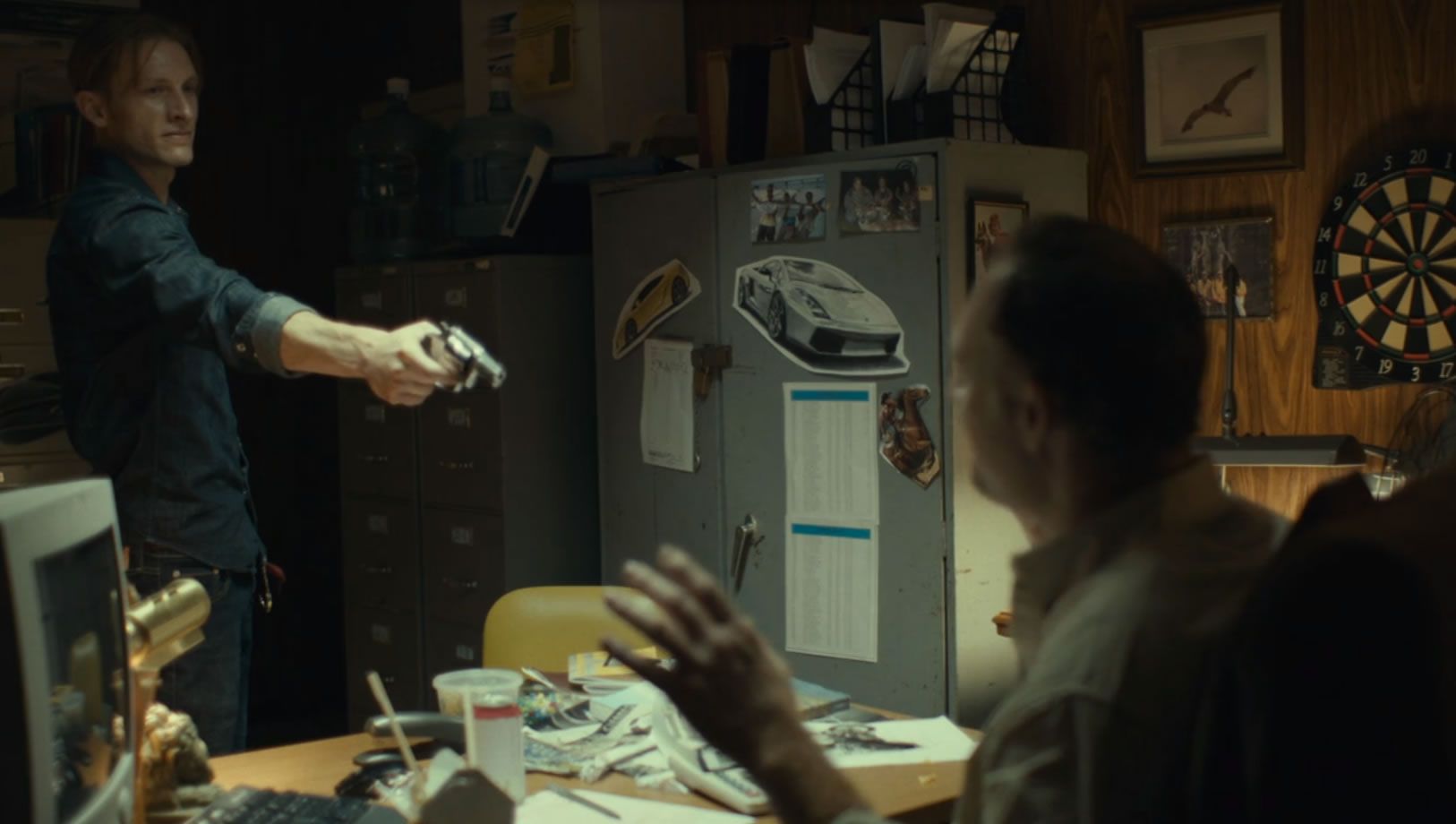Film critics live in a wonderful bubble where you get to see most movies early and for free. If you’ve been doing it long enough, build a readership, and make the proper contacts, you can expand into festival coverage as well. Meanwhile, outside of the bubble, people pay high costs for tickets at the theater or scrounge around Netflix for what was released in past years. However you end up seeing movies is great, but I fully admit that film critics have a privileged position that should encourage us to sympathize with people who may not be aware of certain indies or didn’t want to chance their time and money on a particular film.
While the 15 films on this list may not be "Best Overall" of the year (although there could be some overlap), they’re certainly worthy of your attention, and we understand why they might have slipped past you. Add them to your queue, your watchlist, or whatever you need to do to make sure they don’t sneak past again.
Of Men and War
There are three cuts currently circulating of this wrenching, endlessly fascinating study of a group of combat veterans working through the emotional toll of warfare in a Napa Valley facility. If you have the chance, seek out the longest one possible, which clocks in at a little over two hours and offers a totally immersive psychological experience in watching these soldiers talk through memories of death, blood, and almost surreal tragedy with one another. Insights into how memories manifest as anger, paranoia, and calcified routine, and how medics are often the most severely damaged in wartime, are only the tip of the iceberg, and director Laurent Béque-Renard shapes the material beautifully to give a full view at these men’s lives. Beyond the therapeutic sessions, the filmmaker films them with their families, and captures moments that give a unique sense of how such experiences affect parenting, spousal harmony, and general health. More than anything, Beque-Renard’s assemblage gives a profound argument for homes and support structures like this in greater number, an argument that so often is ignored by those who ensconce themselves in all things “patriotic.” - Chris Cabin
Z for Zachariah
If you need proof that Sundance buzz can evaporate as quickly as the snow in Park City on a warm day, Z for Zachariah may have been felled by too much secrecy, which in turn created a level of anticipation an intimate character drama about grief and guilt never could have matched.
And that’s a shame because it’s no fault of the film itself, which takes place in a post-apocalypse unlike any you’ve ever seen. The story follows Ann (Margot Robbie), who lives in a peaceful valley that’s managed to remain untouched from a global-nuclear war, and yet when two men (Chiwetel Ejifor and Chris Pine) eventually cross into her sanctuary, the pain of the outside is inescapable.
Paired with his last feature, Complicance, director Craig Zobel shows he’s a master of psychological and emotional tension emanating from our deepest fears and frailties. The deep melancholy and fear that runs through Z for Zachariah along with the great performances and direction make it a darling little gem that may not have caught heat at Sundance, but you should still seek it out. - Matt Goldberg
Queen of Earth
For those who have been following the career of Alex Ross Perry, Queen of Earth both offered an entirely new angle on his artistic perspective and temperament and reaffirmed his place in the upper echelons of modern American filmmaking. Following the wry, wonderful Listen Up Philip, Queen of Earth summons notes of Polanski alongside the obvious Rohmer and Pialat influences in its tale of two best friend, played with alternating quiet and deafening ferocity by Elisabeth Moss and Katherine Waterston, who find their relationship rubbed raw during a short holiday in the countryside. Matters of class, sex, trust, and mental illness bleed through the initially docile environs and make for one of the most immediate and thrilling cinematic experiences of the year, shaped by stirring close-ups and long takes from DP Sean Price Williams. That this would come from the man who is currently scripting the next Winnie the Pooh film makes its unrelenting psychological power all the more bewildering and brilliant. - Chris Cabin
Slow West
While I’m always reluctant to make long-term wagers since no one will ever realistically check on the outcome, I’d wager that Slow West will eventually grow into a cult western, and while the bigger films on its actors’ filmography might overshadow it, John Maclean’s weird little movie will still hold its own.
The wry picture follows a young Scotsman (Kodi Smit-McPhee) who has come to America to be with his ladylove only to find a west that’s far removed from his idealized romanticism and far more in line with the cold pragmatism of his compatriot, Silas Selleck (Michael Fassbender). However, Silas has a hidden agenda: collect the bounty on the Scotsman’s girlfriend.
These are the fun tweaks, twists, and turns Maclean brings to the genre, and the movie sports one of the best visual gags I’ve seen in years. Don’t wait twenty years to see this one. See it now and be one of the people who champion the movie. - Matt Goldberg
In Jackson Heights
In Jackson Heights is the latest in a long line of masterworks from the high priest of cinema verite, Frederick Wiseman, and may be his best film of this decade thus far. Whereas his last two brilliant studies focused on distinct institutions, namely California’s Berkeley College and London’s National Gallery, his latest is more a view of a community, per the film’s title, and that the titular neighborhood is considered the most diverse area in America suggests just where Wiseman is going with all of his stunning and generous imagery. Wiseman focuses his attentions to a myriad of communal elements, from preparations for the upcoming gay pride parade and the memorial for a slain gay man to a number of houses of prayer and discussion. As fans of the documentarian will note, he does not speak a word, nor does he employ any kind of graphics or informational animations, throughout the film. Instead, he finds the thumping pulse of life in one of New York City’s most beloved neighborhoods through shrewd editing, compositional curiosity, and an inherent sense of where to be and what to shoot. Here, he invokes an American ideal, a few dozen blocks where our nation still feels very much like the melting pot it always intended to be. - Chris Cabin
Finders Keepers
Finders Keepers is one of the most thoughtful documentaries of the year, and I’m including Joshua Oppenheimer’s The Look of Silence in that estimation (which I almost included on this list, but I figured more people would be slightly more aware of that movie because it’s a follow-up to Oscar-nominee The Act of Killing). The quarrel between two men over a severed leg may not be on the level of genocide, but it’s also nowhere near as silly as the absurd pretext may lead some to believe.
The reasons why John Wood wanted to hold on to the leg he lost in a plane crash and keep it in a smoker grill, or why Shannon Whisnant refused to give that leg back when he won the smoker grill in an auction, seem inexplicable at first glance, but directors Bryan Carberry and J. Clay Tweel found the achingly human heart at this bizarre conflict. Symbols have meaning, and sometimes we don’t get to choose those symbols. Sometimes the symbol is a severed leg; that doesn’t make its meaning—or Finders Keepers—any less poignant. - Matt Goldberg
Christmas, Again
While many have been speaking about The Night Before and Krampus as 2015’s most obvious candidates for new Christmas classics, my choice would be Charles Poekel’s tight, terrific micro-indie about a Brooklyn christmas tree vendor, played by the talented Kentucky Audler. The set-up is similar to the recent Paul Giamatti-Paul Rudd going All is Bright, but where that film went for forced idiosyncrasies and familiar storytelling cohesion, Christmas, Again gets at the fractured details of being alone in your lonely work during a time of sentimentalized familial unity. Audler’s unlikely salesman gets brief but telling glimpses into the lives of his customers, weathers a bitter boss and lazy new hires, and starts something like a romance with a drunk stranger. Poekel, working with Queen of Earth cinematographer Sean Price Williams, finds a fleeting yet fulfilling intimacy in this brief flicker of city living and, in the course of the films 70-odd-minute runtime, finds an ideal symbol for the working life of a low-scale filmmaker. - Chris Cabin
Black Sea
Even if I didn’t love submarine movies, I would still recommend Black Sea. It’s not going to go down as one of the all-time greats of the genre, but it’s also a film that was unceremoniously dumped in January, a cruel fate for a solid film about class and cultural warfare on an old Russian submarine.
The plot follows a group of old seaman who have been laid off but believe they have the coordinates to sunken Nazi gold. It’s a great B-movie plot that’s well delivered by a strong cast (I partly suspect the reason the film was ignored is because half the cast is Russian, and therefore unknown to American audiences), and it’s exceptionally timely. Black Sea is a nice mix of throwback and current-day economic strife boiled together in a thrilling undersea survival flick. Put it on your radar. – Matt Goldberg
The Fool
Or 2015’s other angry political allegory from Russia, after the late Aleksai Germain’s towering, grotesque Hard to Be a God. Yuri Bykov’s infuriating, unrelentingly cynical vision of Putin’s Russia takes a crumbling housing complex, filled with dope-heads, criminals, gamblers, the elderly, and the unemployed, as its central metaphor but the focus of the film is on the moral journeys taken by an engineering student, Dima (Artem Bystrov), and Nina (Nataliya Surkova), the mayor of the unnamed town where the low-income housing complex is placed. The film leans on a linear time frame, but in this case, the familiar unspooling of the narrative makes the unrelenting barrage of corruption that these two figures come into contact with all the increasingly dread-laden. No fair explaining how this all ends, but make no mistake, Bykov’s fury and anguish over the state of his homeland rings loud and clear without letting the ignorant, passive contingencies of the populace off the hook. - Chris Cabin
While We're Young
This was my favorite film I saw at the 2014 Toronto International Film Festival, and while I didn’t adore it quite as much on a second viewing, it still absolutely nails the relationship not only between baby boomers and millennials, but also the re-appropriation of culture between the two. One of the main things that makes While We’re Young so admirable is that it doesn’t carry a sense of bitterness. There’s no angry, elderly fist-shaking at these darn kids today with their YouTubes.
Instead, it looks at the relationship between a childless couple played by Ben Stiller and Naomi Watts and a millennial couple played by Adam Driver and Amanda Seyfried, and satirizes the similarities and differences between them. By finding the universal—unhappiness with your partner—and the distinct like Driver’s need to record and choreograph everything, While We’re Young makes for a defining work on generational clash, and does so with a big smile on its face. – Matt Goldberg
James White
Movies like James White are made almost every year: character studies centered around recent turmoil, either romantic,familial, or social, featuring great performances and, more often than not, familiar handicam imagery. The downside to these films is that the look of them trades any sense of personal expression for a sort of false immediacy, but Josh Mond’s remarkable debut rises above even its general imagistic plainness, thanks to the director’s general sense of auditory detail and sense of space. Above everything else, Christopher Abbot’s exhilarating performance as the titular character, dealing with a recently passed father and a cancer-ridden mother (an equally evocative Cynthia Nixon), gives Mond’s film a positively electric feeling of gestural and facial reactivity. But must admit to the small details that elevate James White above its ilk, such as the opening sequence when Ray Charles drowns out an outer world of rapid, ravenous Danny Brown, suggesting the uneasy balance between callous self-pity and genuine empathy that Abbott’s thirty-something is struggling to maintain. - Chris Cabin
'71
Again, not to bet on the future, but director Yann Demange looks like he's going to be the next Paul Greengrass, so you should go ahead and get in on the ground floor with his feature debut, ’71. This is another film that feels like it was lost between festivals (it played last year at Berlin and TIFF) and being released early in 2015, which is a damn shame because it’s absolutely incredible.
The story follows a young British soldier (Jack O’Connell, who I thought would have a bigger breakout year in 2014, but will have to remain as a rising star for the time being) trapped in hostile Northern Irish territory in 1971, and the movie is electric. Demange puts us inside of a pressure cooker with O’Connell’s desperate soldier, and yet it never feels like it’s cheapening the weight of the historical conflict. Even if Demange doesn’t follow Greengrass’ career trajectory, I hope he does a new film soon, because he’s a tremendous talent whose work demands to be seen. – Matt Goldberg
Mustang
There are obvious notes of Sofia Coppola’s The Virgin Suicides in Deniz Gamze Ergüven’s startling debut, Mustang, but this enveloping Turkish drama is a far more angry film than Coppola’s. In a small Turkey town, a quintet of sisters, ranging from twelve to eighteen approximately, are forced into homeschooling and, eventually, into getting married off by their devoutly religious grandmother, following a relatively innocent frolic with some boys at a nearby beach. Like The Fool, the film is relatively straightforward in its narrative unraveling and similarly grows from a forceful melodrama to a furious, politically tinged thriller. Ergüven depicts a society where misogyny and an obsession with masculine pride passively destroys women, leading two sisters to loveless marriages and one to far more tragic terrain. And yet, the director suggests that a social conscious is alive in education and an increasing liberal contingency in the Turkish youth, a pure sense of empathy that can not just save women in these situations but give them a place to find their passions and reinforce their beaten-down sense of self. - Chris Cabin
99 Homes
Easily one of the most heartbreaking movies of the year, this is one of the true masterpieces to be based on the housing crisis. Director Ramin Bahrani hits to the devastating core of the economic crash, and watching people lose their homes has never felt so punishing and yet so necessary. This is the human cost and fallout of the Great Recession, and Bahrani captures it perfectly by turning it into a morality tale between an average man who must sell his soul to the devil.
Andrew Garfield is wonderful as the regular guy who must scrape to make ends meat and Michael Shannon is perfect as the heartless developer who woos Garfield's character into a bargain that would make Mephistopheles blush. While the moral black-and-white could make for a dull movie, 99 Homes always manages to find shading thanks to the nuanced performances and restrained direction coupled with the lived-in reality of these awful circumstances. While we can look to a film like The Big Short about why the housing crisis happened, 99 Homes forces you to live inside of it. – Matt Goldberg
Two Step
Where so many neo-noirs show a narrow sense of plot and character focus to shallowly amp up tension, Alex R. Johnson’s scrappy, sinister Two Step recalibrate the genre to give a fuller sense of community that recalls classic noirs of the 30s and 40s. The film essentially pits a tragic college dropout, James (Skyy Moore) against a furious, self-obsessed career criminal, Webb, played with wild intensity by James Landry Hebert, with the latter trying to steal James’ dead grandmother’s small fortune. The scenes between these two actors are scintillating and tense, but Johnson includes the doings of a motherly other woman who takes James under her wing and a small-scale crime boss that rules over the small Texas town where all this unfolds. And yet, in the film’s fleeting runtime, nothing feels rushed or cramped, and the dreary mood never feels overworked, allowing Johnson to at once recall the classics that inspired this menacing crime story and evince a modernity that’s all his own. - Chris Cabin

